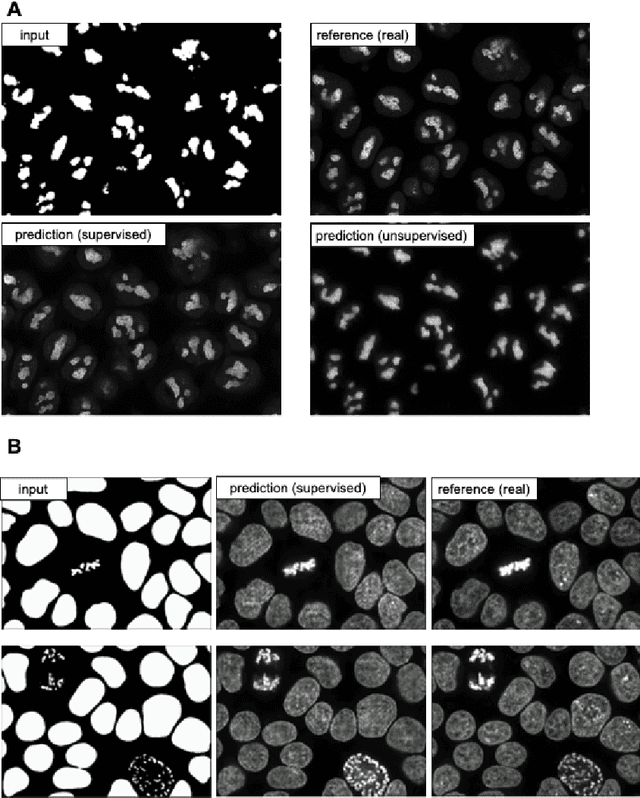Justin Sonneck
FlowRoI A Fast Optical Flow Driven Region of Interest Extraction Framework for High-Throughput Image Compression in Immune Cell Migration Analysis
Nov 18, 2025Abstract:Autonomous migration is essential for the function of immune cells such as neutrophils and plays a pivotal role in diverse diseases. Recently, we introduced ComplexEye, a multi-lens array microscope comprising 16 independent aberration-corrected glass lenses arranged at the pitch of a 96-well plate, capable of capturing high-resolution movies of migrating cells. This architecture enables high-throughput live-cell video microscopy for migration analysis, supporting routine quantification of autonomous motility with strong potential for clinical translation. However, ComplexEye and similar high-throughput imaging platforms generate data at an exponential rate, imposing substantial burdens on storage and transmission. To address this challenge, we present FlowRoI, a fast optical-flow-based region of interest (RoI) extraction framework designed for high-throughput image compression in immune cell migration studies. FlowRoI estimates optical flow between consecutive frames and derives RoI masks that reliably cover nearly all migrating cells. The raw image and its corresponding RoI mask are then jointly encoded using JPEG2000 to enable RoI-aware compression. FlowRoI operates with high computational efficiency, achieving runtimes comparable to standard JPEG2000 and reaching an average throughput of about 30 frames per second on a modern laptop equipped with an Intel i7-1255U CPU. In terms of image quality, FlowRoI yields higher peak signal-to-noise ratio (PSNR) in cellular regions and achieves 2.0-2.2x higher compression rates at matched PSNR compared to standard JPEG2000.
EfficientBioAI: Making Bioimaging AI Models Efficient in Energy, Latency and Representation
Jun 09, 2023Abstract:Artificial intelligence (AI) has been widely used in bioimage image analysis nowadays, but the efficiency of AI models, like the energy consumption and latency is not ignorable due to the growing model size and complexity, as well as the fast-growing analysis needs in modern biomedical studies. Like we can compress large images for efficient storage and sharing, we can also compress the AI models for efficient applications and deployment. In this work, we present EfficientBioAI, a plug-and-play toolbox that can compress given bioimaging AI models for them to run with significantly reduced energy cost and inference time on both CPU and GPU, without compromise on accuracy. In some cases, the prediction accuracy could even increase after compression, since the compression procedure could remove redundant information in the model representation and therefore reduce over-fitting. From four different bioimage analysis applications, we observed around 2-5 times speed-up during inference and 30-80$\%$ saving in energy. Cutting the runtime of large scale bioimage analysis from days to hours or getting a two-minutes bioimaging AI model inference done in near real-time will open new doors for method development and biomedical discoveries. We hope our toolbox will facilitate resource-constrained bioimaging AI and accelerate large-scale AI-based quantitative biological studies in an eco-friendly way, as well as stimulate further research on the efficiency of bioimaging AI.
MMV_Im2Im: An Open Source Microscopy Machine Vision Toolbox for Image-to-Image Transformation
Sep 06, 2022

Abstract:The deep learning research in computer vision has been growing extremely fast in the past decade, many of which have been translated into novel image analysis methods for biomedical problems. Broadly speaking, many deep learning based biomedical image analysis methods can be considered as a general image-to-image transformation framework. In this work, we introduce a new open source python package MMV_Im2Im for image-to-image transformation in bioimaging applications. The overall package is designed with a generic image-to-image transformation framework, which could be directly used for semantic segmentation, instance segmentation, image restoration, image generation, etc.. The implementation takes advantage of the state-of-the-art machine learning engineering techniques for users to focus on the research without worrying about the engineering details. We demonstrate the effectiveness of MMV_Im2Im in more than ten different biomedical problems. For biomedical machine learning researchers, we hope this new package could serve as the starting point for their specific problems to stimulate new biomedical image analysis or machine learning methods. For experimental biomedical researchers, we hope this work can provide a holistic view of the image-to-image transformation concept with diverse examples, so that deep learning based image-to-image transformation could be further integrated into the assay development process and permit new biomedical studies that can hardly be done only with traditional experimental methods. Source code can be found at https://github.com/MMV-Lab/mmv_im2im.
 Add to Chrome
Add to Chrome Add to Firefox
Add to Firefox Add to Edge
Add to Edge